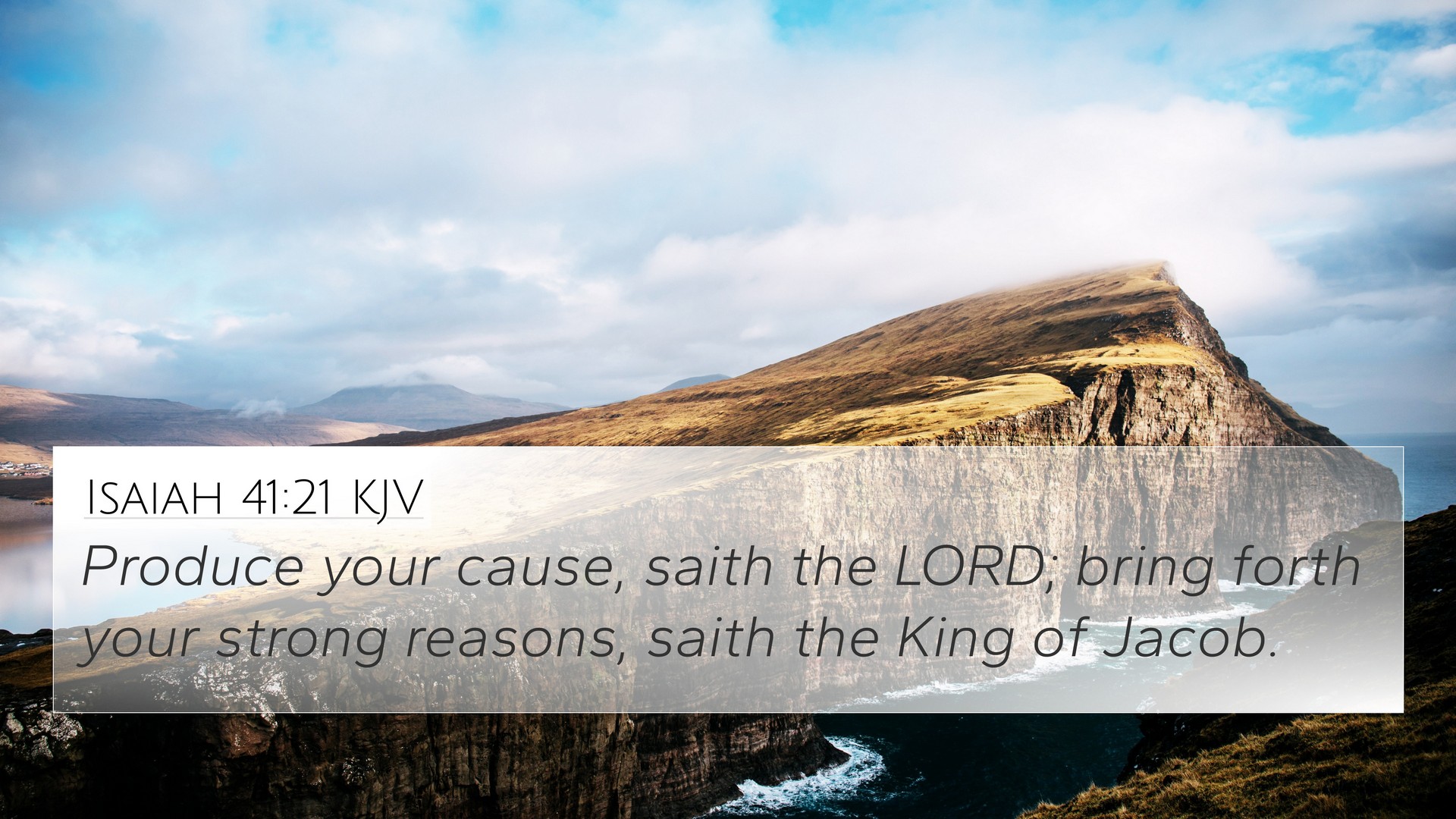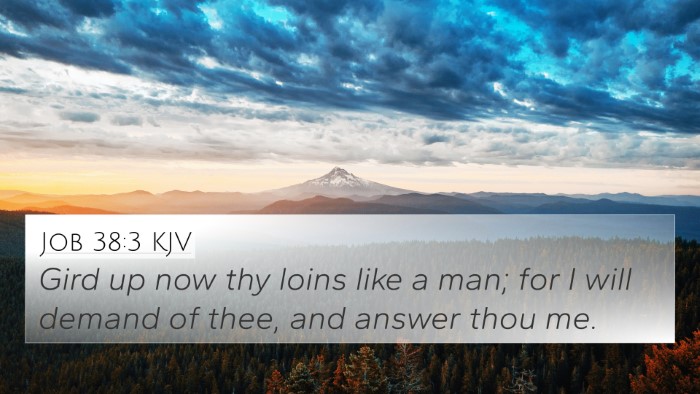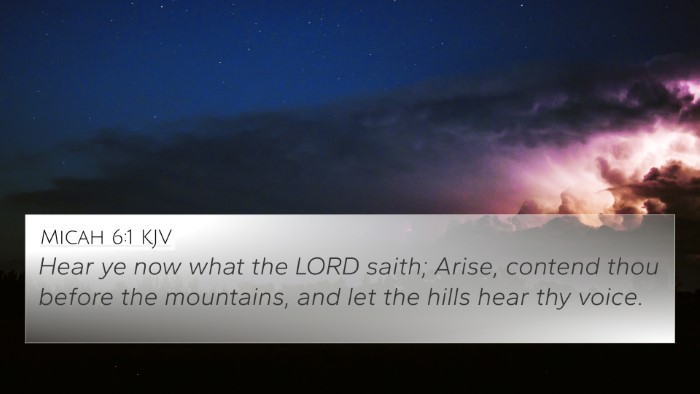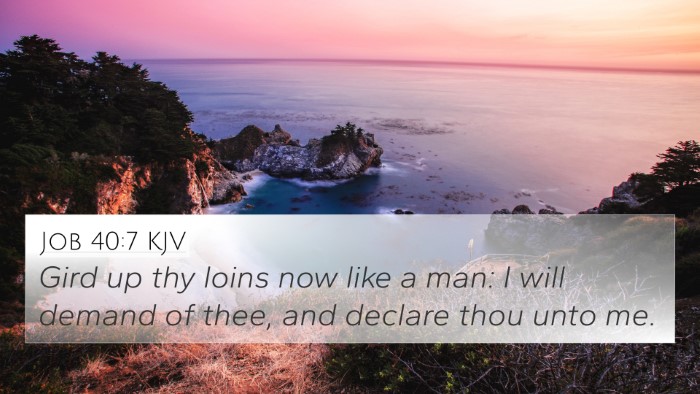Understanding Isaiah 41:21
Isaiah 41:21 states, "Produce your cause, saith the Lord; bring forth your strong reasons, saith the King of Jacob." This verse invites the nations and individuals to present their cases against God, emphasizing the challenge to demonstrate the validity of their idols and claims.
Meaning and Interpretation
The essence of this passage serves several critical functions:
- Challenge to Idolatry: God calls out the idols and false gods that the people have created. Through this verse, He invites them to compare their claims of divinity and power with His undeniable sovereignty.
- Divine Sovereignty: Isaiah emphasizes the authority of God over all creation and the futility of opposing His will. God is positioned as the ultimate authority, the "King of Jacob," inspiring a deep sense of reverence and recognition of His supremacy.
- Calls for Rationality: The phrase "bring forth your strong reasons" suggests that God expects a reasoned explanation for the claims made by those who oppose Him. This call for rational debate underlines the necessity of faith that is informed and not blind, emphasizing a thoughtful engagement with divine truths.
Insights from Public Domain Commentaries
Matthew Henry remarks that this verse stands as a challenge to the vain idols that seek glory among nations. He suggests that God not only invites the comparison but actively seeks the silencing of false claims to demonstrate His power and truth.
Albert Barnes indicates that the reference to “strong reasons” implies a demand for justification of one's beliefs and positions before God. This serves as a call for introspection and accountability, drawing individuals to weigh their convictions against the ultimate truth of God’s word.
Adam Clarke characterizes this verse as an invitation to the masses to not only analyze their beliefs but also to provide proof of their claims. Clarke importantly notes the significance of God's challenge being particularly aimed at the enemies of His people, suggesting that confrontation is inherent in divine discourse.
Related Bible Verses and Cross-References
This verse resonates with numerous other scriptures, providing a framework for comparative Bible verse analysis. Below are some pertinent cross-references:
- Isaiah 43:10: "You are my witnesses, declares the Lord, and my servant whom I have chosen..." This verse ties into God's affirmation of His sovereignty and the role of believers as witnesses to His truth.
- Isaiah 44:6: "Thus saith the Lord the King of Israel, and his redeemer the Lord of hosts..." Here, God reaffirms His sovereign nature and questions the validity of other gods.
- Jeremiah 10:10: "But the Lord is the true God; he is the living God and the everlasting King..." Jeremiah complements Isaiah’s declaration, reinforcing God's unique status as the living God.
- Romans 3:4: "Let God be true, but every man a liar..." Paul’s assertion in Romans echoes Isaiah’s challenge to human reasoning in the light of divine truth.
- Revelation 19:16: "On his robe and on his thigh, he has a name written, King of kings and Lord of lords." This New Testament reference aligns with God's identification as King in Isaiah.
- Psalm 96:5: "For all the gods of the peoples are worthless idols..." This parallels the challenge in Isaiah, emphasizing the supremacy of the Lord over false gods.
- Acts 17:26-27: "...He made from one man every nation of mankind to live on all the face of the earth..." This understanding of God’s creation ties back to His call for accountability in Isaiah.
Thematic Connections and Inter-Biblical Dialogues
Isaiah 41:21 provides a rich theme of divine sovereignty which resonates through both the Old and New Testaments:
- Divine Challenge: The Lord consistently challenges falsehood throughout the Scriptures, inviting validation of claims made against Him.
- Witnessing to Truth: The call for witnesses in Isaiah is reiterated in the New Testament where believers are commissioned to spread the truth of the Gospel.
- Idolatry's Futility: The condemnation of idolatry in both Isaiah and Jeremiah reflects a continuous warning to God’s people across generations.
Conclusion
Isaiah 41:21 stands as a powerful proclamation of God’s sovereignty, calling His people to recognize and validate their faith. The verse invites deeper exploration into the connections between Bible verses, highlighting the importance of cross-referencing biblical texts for a richer understanding of scripture.
By employing tools for Bible cross-referencing, believers can further explore these connections, revealing thematic parallels and biblical truths that inform their spiritual journeys.







